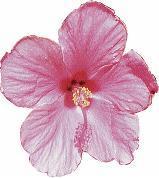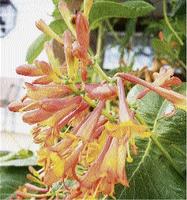

Hibiscus, especially the potted characters, can be a vexing proposition. They will grace a corner of a veranda for ages, looking perfectly happy. Then, suddenly, they will start shedding their leaves. For (apparently) no good reason. Why?
You should know that the most common reason for a hibiscus to drop leaves is the soil being too dry. However, if the soil is kept moist but not soggy, one must look for another problem. One must also rule out any 'irregularities' such as pests or residue/mould on leaves; check carefully.
That leaves us with two other probabilities: too much water, or a draughty area. Hibiscus are very picky about watering - it must be just right! They also won't tolerate drafts, hot or cold. They should be kept out of doorways and away from draughty windows and air vents. Over-fertilising or build-up of fertiliser salts is another possibility.
House plants should only be fertilised during the spring/summer months (March through August as a rule of thumb).
Occasionally, flood the soil with water and allow to drain thoroughly, to rinse away any built-up salts. When bringing plants indoors after time outside, make the move gradually so the plant can become accustomed to the lower light levels indoors. Start by placing the plant in a sheltered spot outdoors, out of direct sun, for a few weeks. Then move it indoors to the sunniest place you have. After a few more weeks, you can move it to its permanent position - for hibiscus, that should be a place with bright light!
Watering those orchids

Orchids with long, floating roots.
Orchids with long, floating roots hanging from a small pot should have said roots watered generously, up and down. Add a small dosage of orchid fertiliser to the water. Use an old folded Gleaner as screen between the wall and the roots so as to avoid water marks. Or get somebody tall to stand in your backyard, holding the plant high while you spray the roots.
Training honeysuckle vine

Honeysuckle vine - Rita Elliott Photos
Somebody I know wants to train a vine up a 10-foot post and on to a deck railing. The following question was put to me: "In due course, should I prune my vine to a couple of main stems?"
Vines climb through different means:
with tendrils
holdfasts
twining vines.
Honeysuckle is a twining vine. No need to prune it to a couple of main stems, but it would probably be easier to work with if you did so. It's worth remembering that pruning a vine will have different effects, depending on the season you carry out the exercise. Generally, pruning vines in late winter or early spring will stimulate more growth than pruning in summer or fall.
So, if you prune down to the main stem during late winter or early spring it should cover the pole faster in the long run. The vines can be attached to the pole and deck railing with very soft twine tied loosely (so you don't bind or girdle the vine at all), pieces of nylon stocking, or special padded vine ties. Check your favourite nursery for the latter.
In Jamaica, a honeysuckle vine is called 'lonicera'.
In her book Caribbean Gardening, the late Aimee Webster wrote about honeysuckle and said: 'Old-fashioned favourite as porch screen can be grown at all altitudes. Semi-shade in hot areas. Water in drought. Prune woody, inner growth occasionally. Any good soil."

